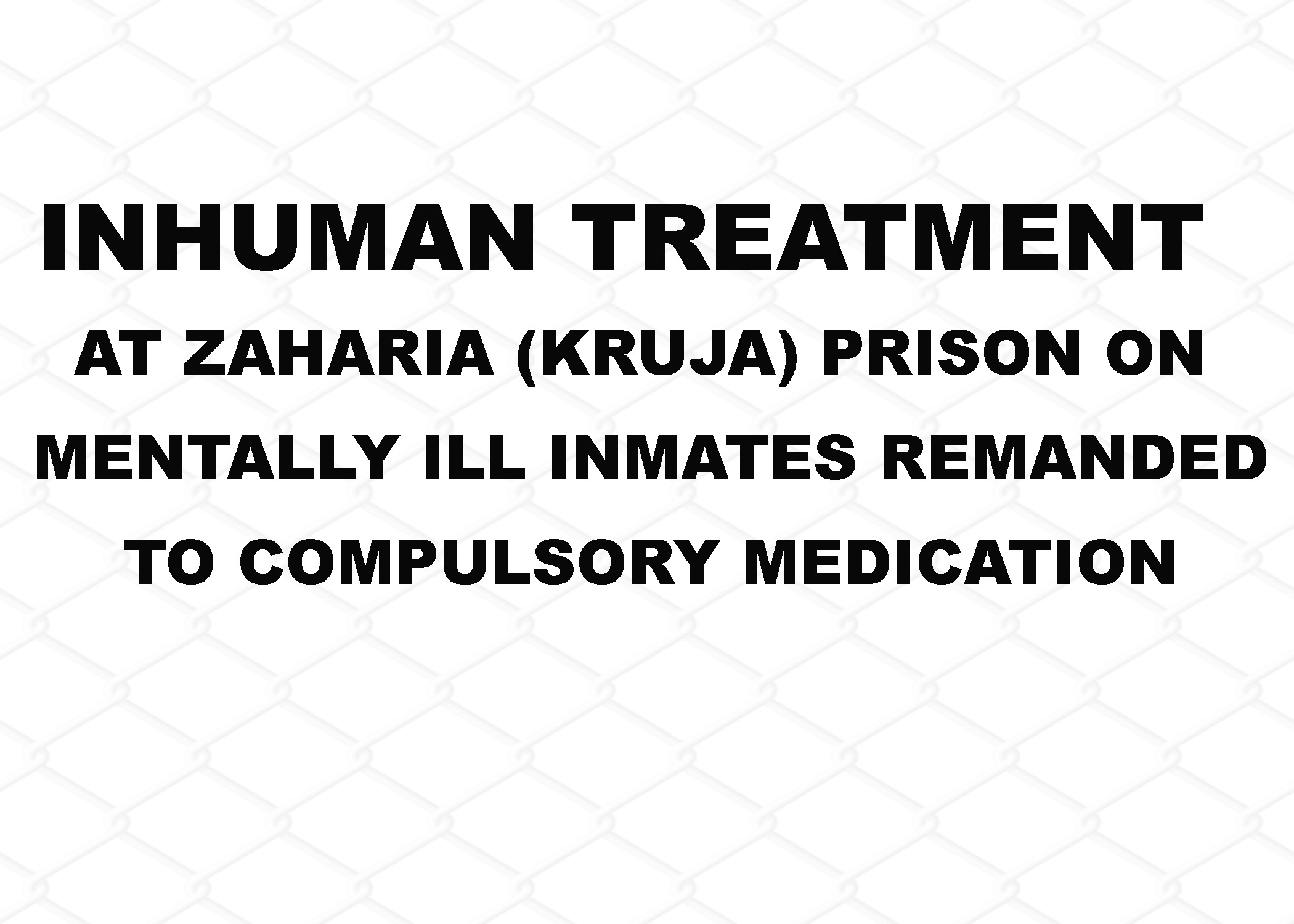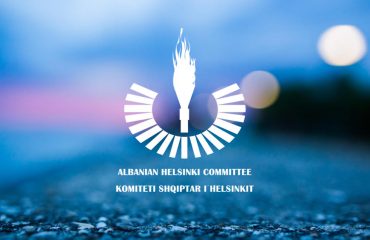On March 2, 2018, the Albanian Helsinki Committee (AHC) monitored respect for the rights of convicted and detained persons with mental health problems at the Zaharia Prison (Kruja) as well as of persons who, by court ruling, should have been placed in specialized institutions for compulsory medication.
Based on our monitoring, it results that in this institution, there are among others 143 persons under compulsory medication, who had been placed in a special section, in rooms where there was very disturbing overcrowding of up to 12 persons per room. The rooms had very difficult conditions that influenced the aggravation of the health condition of these persons. More concretely, there was humidity, poor hygiene, worn-out clothing, and scarce natural lighting while the heating system was out of service. The fulfillment of toilet needs of these persons was difficult and delayed due to the large number of persons and the 4 toilets available. The showers were malfunctioning and did not have running water. As a result, they used buckets of water often for washing themselves.
The institution had marked deficiencies in health care personnel, which led to poor quality and unmet service requirements on what should be provided to ill persons. The staffing of the institution envisaged 5 doctors while there were only 2 such, 12 nurses while there were 3 such. It was very disturbing that there was no psychiatrist in the circumstances when the number of mentally ill persons was very high and the staffing pattern envisaged two such. During the monitoring, we confirmed the fact that the psychiatrist came once every fifteen days and did not manage to check on all patients during the day and most of them presented complaints. Also, there was a lack of psychologists; two were employed while there should be four such.
AHC monitored the medical books of the mentally ill persons and found that they were not updated; they lacked the anamnesis of the patient with the pertinent nomenclature and there were even such books that had not been updated since two or three months. During the monitoring, it resulted that there was a lack of various lab machines, the absence of which made appropriate medication difficult and could even lead to serious consequences for the patients’ health.
Although the persons remanded to a medical measure were placed in special sections, these sections were far from the conditions of a specialized hospital or clinic as required by law. The time that these patients remained in this section continues for years, which makes their specialized treatment and accommodation difficult and could worsen their mental health. To date, no measure has been taken to send this category of citizens to a specialized psychiatric institution. On this group of persons, AHC also carried out a monitoring mission on December 2, 2017, and found the same situation. AHC thinks that such treatment not only is not human, but it contains all the elements of inhuman and degrading treatment envisaged by article 86 of our Criminal Code and article 3 of the ECHR.
Failure to execute court rulings on this category of citizens for compulsory medication in specialized institutions is in contravention of article 46 of the Criminal Code, article 464 item 4 of the Criminal Procedure Code, article 25 of Law No. 8331, dated 21.04.1998, amended, “On the rights and treatment of convicts and detainees,” article 28, item 1, of law 44/2012 “On mental health,” and the practice of the European Court of Human Rights.
It is precisely the above reasons that force the AHC to recommend to the Kruja Judicial District Prosecution Office to initiate criminal proceedings upon its own initiative.
The initiative to monitor respect for the rights of persons with mental health problems in this institution was realized with the support of the Open Society Foundation for Albania, in the context of the project “Litigating strategically for effective protection of rights in the field of health.”





